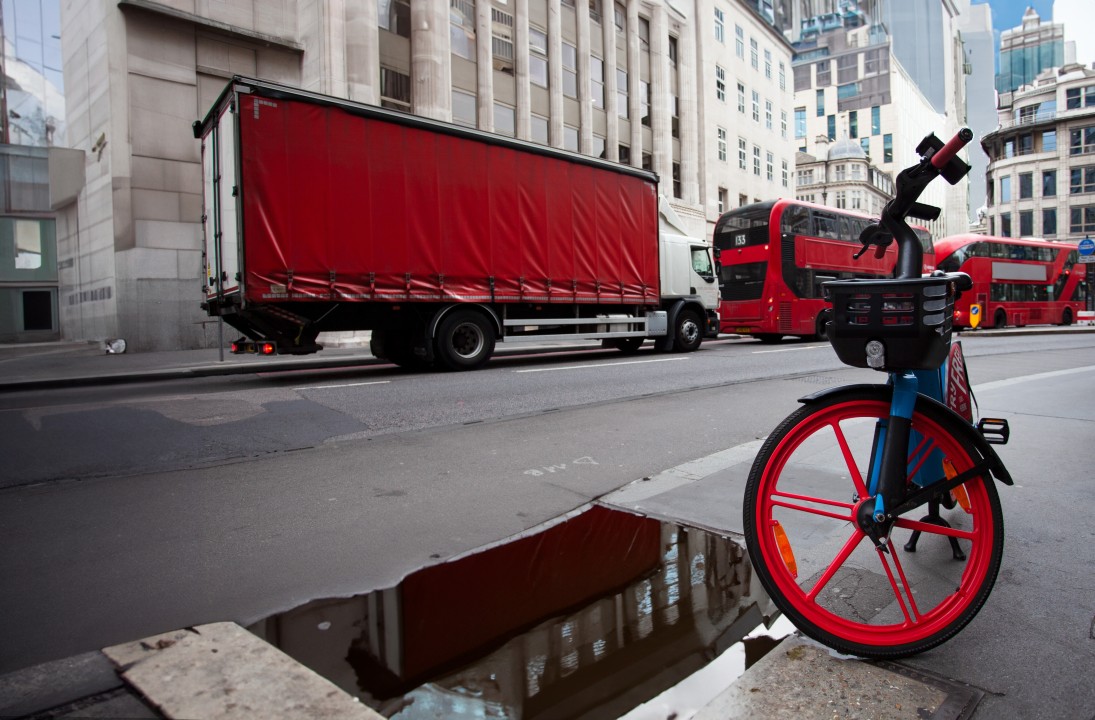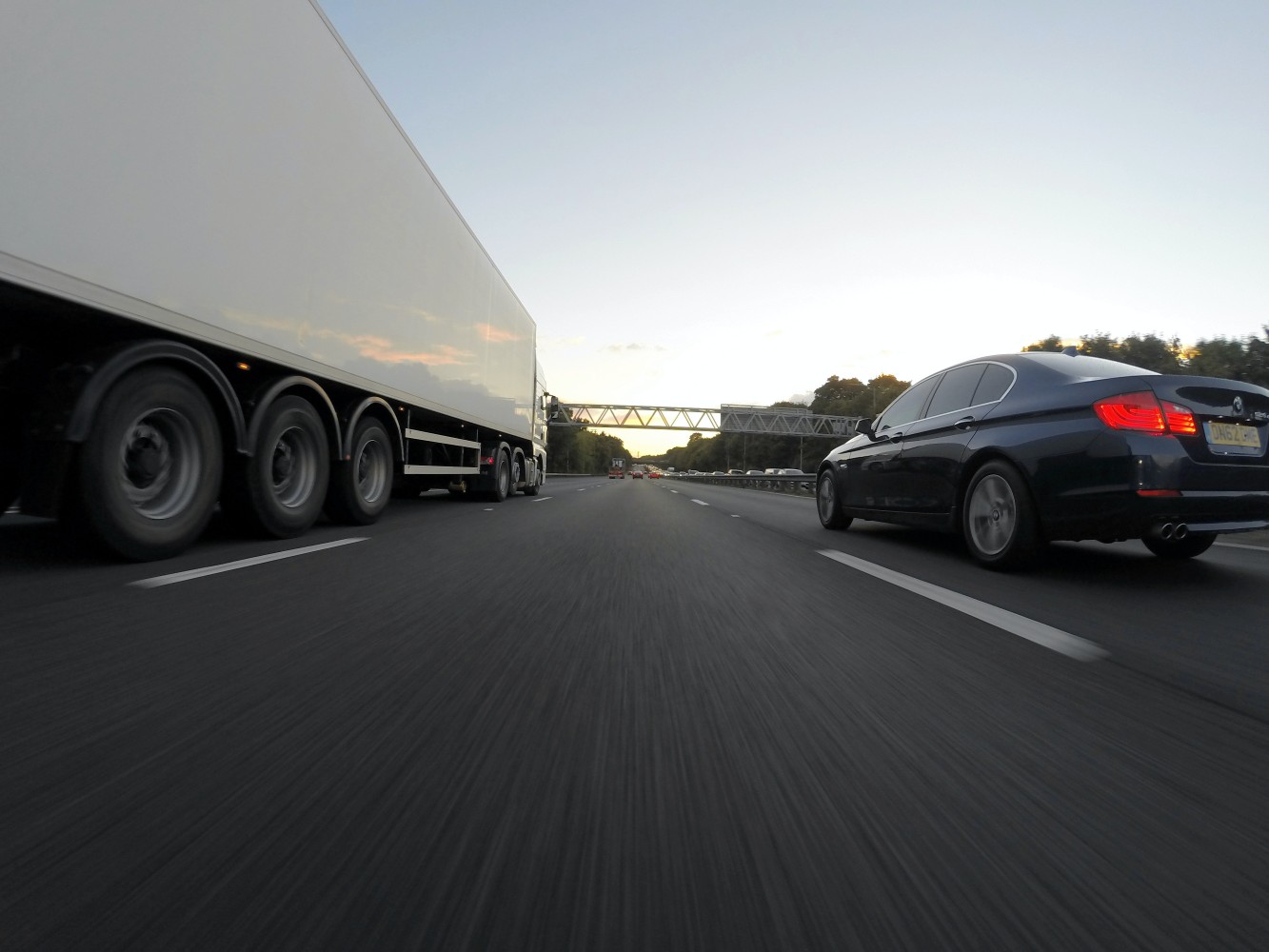
Susie Jones
Päť vyvrátených mýtov o nákladnej doprave
Vytvorené: 19. 08. 2024
•
Aktualizované: 19. 08. 2024
Jazda nákladným autom je už po stáročia základom globálneho obchodu - rozváža tovar a základné potreby po celom svete. Napriek svojej zásadnej úlohe však bola nákladná doprava dlho opradená mýtmi a mylnými predstavami.
Hoci niektoré z týchto mýtov možno brať s rezervou, niektoré môžu poškodiť odvetvie nákladnej dopravy a ľudí, ktorí v ňom pracujú. Preto je prvoradé vyvrátiť tieto mylné predstavy, aby vodič nákladného vozidla zostal atraktívnou kariérnou voľbou aj pre budúce generácie. Našej komunity vodičov na Facebooku sme sa opýtali na niektoré z najväčších mýtov, ktoré počuli počas svojej kariéry.
1. Vodiči nákladných vozidiel sedia celý deň
"Vodiči kamiónov celý deň len sedia." Fráza, ktorú bežne počuje vodič kamiónu, Luke.
Svet nákladnej dopravy je viac ako len šoférovanie. Vodiči nákladných vozidiel často spolupracujú s ostatnými na termináloch, v dokoch a skladoch pri vykladaní a nakladaní nákladu. Za volantom to tiež nie je všetko hladké. Vodiči nákladných vozidiel sa musia sústrediť na manévrovanie so svojimi vozidlami a musia dodržiavať prísne predpisy týkajúce sa tachografov. Je nevyhnutné dobre poznať oblasti, v ktorých môžu a nemôžu jazdiť, ako aj poznať potenciálne nebezpečenstvá.
2. Všetci kamionisti sú muži
Ide o zastaraný stereotyp, ktorý neodráža realitu modernej nákladnej dopravy. V poslednom čase došlo k výraznému posunu v pomere mužov a žien medzi vodičmi nákladných vozidiel. V roku 2021 tvorili ženy-vodičky len 1 % z 315 000 vodičov nákladných vozidiel v Spojenom kráľovstve. Tento počet sa však z roka na rok zvyšuje, pretože odvetvie sa vyvíja a prijíma inkluzívnosť. Vodiči ako Jodi Smith sú neoceniteľnými advokátmi žien v tomto odvetví. Jodi dokumentuje svoje skúsenosti s nákladnou dopravou na internete a inšpiruje ostatných, aby si sadli za volant.
3. Každý môže riadiť nákladné auto
Mnohí predpokladajú, že ak dokážu riadiť osobné auto, dokážu riadiť aj nákladné auto. Šoférovanie nákladného vozidla si však vyžaduje jedinečný súbor zručností, ktorý nemusí byť vhodný pre každého. Na riadenie nákladného vozidla sa vyžaduje kvalifikácia osvedčenia o odbornej spôsobilosti vodiča (CPC). Na získanie CPC musia vodiči absolvovať päť testov:
Teória
Prípadová štúdia
Cvičenia v teréne
Jazda na ceste
Praktické ukážky
Okrem toho si šoférovanie nákladného vozidla vyžaduje životný štýl, ktorý nie je pre každého - s dlhými hodinami na cestách, ktoré často predstavujú neočakávané výzvy.
4. Brzdná dráha
"Vodiči osobných áut si myslia, že brzdná dráha nákladného vozidla je rovnaká ako brzdná dráha osobného auta", to už vodič nákladného vozidla Paul počul príliš veľa krát.
Brzdná dráha nákladného vozidla sa výrazne líši od brzdnej dráhy osobného vozidla, čo je spôsobené viacerými faktormi: - Hmotnosť: celková hmotnosť naloženého nákladného vozidla je vyššia ako hmotnosť bežného osobného vozidla, čo znamená, že na spomalenie a zastavenie je potrebná väčšia sila.
- Mechanika: brzdový systém nákladného vozidla je prispôsobený pre ťažké náklady, čo znamená, že má väčšie a robustnejšie nápravy a brzdové komponenty - výsledkom je dlhší reakčný čas a väčšia brzdná dráha.
Pri rýchlosti 60 km/h potrebuje nákladné vozidlo na zabrzdenie 132 m v porovnaní so 73 m v prípade osobného vozidla, čo poukazuje na dôležitosť ponechania dostatočného priestoru medzi sebou a nákladným vozidlom pri intenzívnom brzdení.

5. Kamionisti sú špinaví
V priebehu rokov sa o vodičoch nákladných vozidiel vytvoril stereotyp, že sú špinaví a leniví, čo je nespravodlivé zovšeobecnenie. Mnohí vodiči diaľkovej dopravy trávia veľa času mimo domova a vo svojich kabínach - čo znamená, že ich hygiena a čistota kabín je prioritou.
Je veľmi dôležité vyvrátiť mýty a mylné predstavy o vodičoch nákladných vozidiel, aby ste lepšie pochopili toto povolanie. Vyvrátenie niektorých rozšírených mýtov vytvorí atraktívnejšie odvetvie pre budúce generácie a zvýši povedomie o vodičoch nákladných vozidiel ako o vysoko kvalifikovanom povolaní, ktoré zohráva dôležitú úlohu v našom hospodárstve.
Je doprava nákladných vozidiel osamelá?
Predtým, ako začnete uvažovať o kariére vodiča nákladného vozidla, je dôležité pochopiť, čo táto práca zahŕňa. Problémom mnohých vodičov nákladných vozidiel je vyrovnávanie sa s osamelosťou - dlhé hodiny na cestách s malou alebo žiadnou komunikáciou sú pre niektorých ťažké, ale pre iných sú snom.
Okrem toho sa na mnohých môže podpísať aj čas strávený mimo svojich blízkych. Pre vodičov sa však stalo jednoduchším komunikovať s priateľmi a rodinou prostredníctvom telefónu alebo videohovoru. Pre vodičov nákladných vozidiel je k dispozícii aj množstvo fór a užitočných rád, ktoré zmierňujú osamelosť.
Môže mať vodič nákladného auta druhé zamestnanie?
Keďže Spojené kráľovstvo prechádza krízou životných nákladov, čoraz viac vodičov uvažuje o druhom zamestnaní. Druhé zamestnanie však predstavuje problémy a riziká, najmä vo svete nákladnej dopravy. Predtým, ako sa vodiči pustia do ďalšieho zamestnávania, musia zvážiť, či v ich spoločnosti existuje politika vedľajšieho zamestnávania.
Pri vytváraní politiky vedľajšieho zamestnávania by spoločnosti a prevádzkovatelia mali zvážiť vplyv na výkonnosť, dochádzku a únavu vodičov. Nehovoriac o dodržiavaní pravidiel týkajúcich sa pracovného času vodičov a pracovného času.


